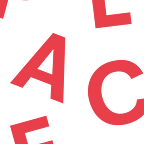Patterns Across Places (5)
Making a case for the uncertain: reflections from the Place Action Inquiry August-September 2020
Max French, Northumbria University
By the summer most of the Place Action Inquiry areas had settled back into action and had picked up those pieces of work dropped suddenly in lockdown. As the networks, working groups, learning spaces and strategic agendas suspended in March were rebooted, our place contacts found themselves having to re-justify and re-pitch these structures to a service system which was changed substantially and already over-stretched. Throughout the lockdown, many of our contacts held space for developing relationships or facilitating reflective processes, or even for retreating slightly into quiet introspection. Those might all be recognised drivers of system change, but they are still at least one step removed from actually improving people’s lives.
It was encouraging that feedback from place contacts and in our own engagement with places many of us have become quite capable advocates for investment in learning and actively seeking out marginalised voices, often in the face of demands to stop talking and start doing. In the Place Action Inquiry, we are all in the business of seeking meaningful improvement in the lives of the most disadvantaged and excluded in our society. Yet when working with complex lives, the quickest pathways to ‘impact’ often exclude the voices, perspectives and knowledge needed to make a real difference. What feels significant is that variations of this argument now seem made as frequently by our place contacts as by us learning partners.
But meeting this is a set of countering questions which we perhaps haven’t addressed head-on. How much uncertainty should we put up with, for how long, and how do we minimise the risks involved? People vary in their ability and inclination to tolerate uncertainty, and often for excellent reasons. Responses to our noticing framework show a range of strategies we have evolved as a response. For those less inclined to tolerate uncertainty for long periods, one strategy is bargaining — perhaps asking them to commit to a process for three or six months and to reserve judgement about effectiveness until that point. Another has been to choose to focus on a hot topic in the place (examples have been developing participatory methods, or creating spaces for collaborative working) where local appetite exists to take on more substantial and open-ended processes. Another has been to form a core group of people who are committed to a long term process, eventually involving those less able to commit when the confidence to make practical changes is achieved.
The reflections of our Place contacts over the past few months prompted a somewhat existential conversation: how can we justify our actions, our demands for people’s time, even our presence? In the great turmoil underway, does our way of working stand up to scrutiny? Discussing feedback over the past months, we were reminded that “asking people ‘what do you want to do’ has not been a useful question for our work”. But, while the ‘what’ of the Place work cannot be specified, the ‘how’ — our approach — has come into focus. Throughout the pandemic, we have seen highly structured and action-focused strategies, and spaces created, which instead seek to hold reflective space and allow open discussion. Feedback from the past months shows it has been the more emergent and open-ended spaces which have worked best, morphing into more focussed conversations and strengthening relationships. While the questions about legitimacy, accountability and strategy are confronted so often as to become tiresome to some of us, perhaps there are some new elements already at play across the Action Inquiry.
